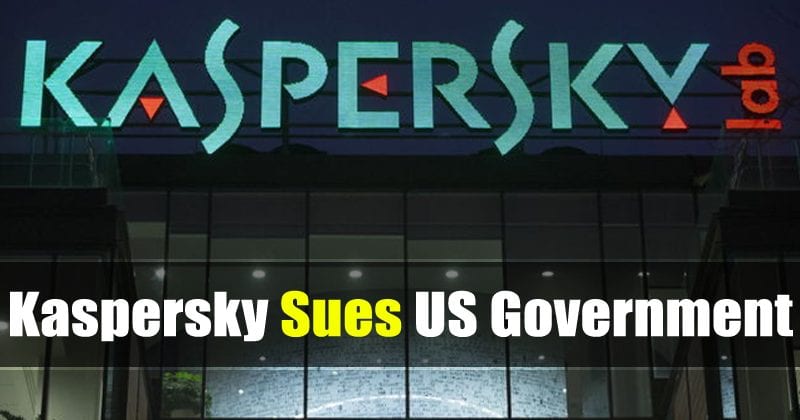The General Services Administration had validated that Kaspersky is no longer an approved software vendor. This means that federal agencies and state departments are not permitted to purchase software products from Kaspersky.
Here’s what General Services Administration said:
“GSA’s priorities are to ensure the integrity and security of US government systems and networks and evaluate products and services available on our contracts using supply chain risk management processes” Well, this is not the first time Kaspersky had raised concerns regarding the collaboration with Russia. Recently, reports from US-based Media, including Bloomberg News suggest that the security firm had powerful ties than initially thought with Russian intelligence agency FSB. On the other hand, the security firm, Kaspersky have denied all the allegations, it had explained on its website that the company doesn’t have any ‘inappropriate’ ties with any government. Kaspersky also added that the company only operates with agencies to fight cybercrime. The United States government has already banned the use of Kaspersky software in federal agencies. The justification was that the company would be working with the Russian government to do espionage. Kaspersky has now filed a lawsuit to try to reverse the ruling. Kaspersky denies any connection to the suspicion that hackers linked to the Russian government would have taken advantage of a breach in a company’s antivirus to spy on an NSA employee and capture sensitive data. The company alleges that the leak occurred because the employee used pirated software, and has opened a program to allow governments to revise the software source code.
Here’s what Kaspersky firm said:
“Kaspersky Lab is very public about the fact that it assists law enforcement agencies around the world with fighting cyber threats, including those in Russia, by providing cyber security expertise on malware and cyberattacks.” “When assisting in official Russian cybercrime investigations, in accordance with Russian law, we only provide technical expertise throughout the investigation to help them catch cybercriminals. Concerning raids and physically catching cybercriminals, Kaspersky Lab might ride along to examine any digital evidence found, but that is the extent of our participation, as we do not track hackers’ locations. Kaspersky Lab doesn’t provide any government agencies, nor other parties, with information on location of people and doesn’t gather ‘identifying data from customers’ computers’ because it is technically impossible.” Kaspersky had also declined all the charges by claiming that it is being “unjustly accused without any hard evidence”. Still, Donald Trump signed a decree banning Kaspersky software from the US government. Major public agencies have migrated to other companies’ security tools. In addition, stores like Best Buy and Staples have removed Kaspersky products from the shelves. As a result, Kaspersky closed its office in the federal capital Washington. The Russians claim that “Kaspersky Lab did not have a fair opportunity to defend itself against the allegations and no technical evidence was given to validate the actions of the DHS (Department of Homeland Security).” In addition, the US government would have “damaged reputation and business operations without any evidence of irregularities.” Therefore, “it is in the interest of Kaspersky Lab to defend itself in this matter”. So, what do you think about this? Share your views in the comment box below.
Δ


